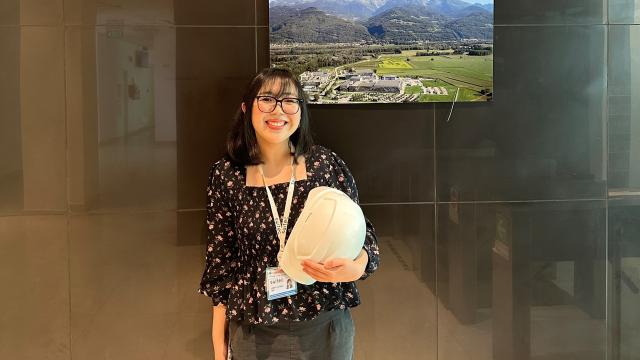SIT, Chemistry and Pod of Life unveil a new approach to combat workplace burnout through The Emotional Baggage Board Game.
Imagine if managing workplace stress was as simple as playing a game. Especially in Singapore, where according to the 2024 Wellness at Work Report by Employment Hero, the workplace burnout rate is one of the highest in the world.
To address this issue and the critical need for emotional resilience, an SIT faculty member collaborated with Chemistry, a strategic experience design consultancy, and Pod of Life, a learning assembly focused on personal and organisational well-being, to develop The Emotional Baggage Board Game. Driven under the leadership of Assistant Professor Angela Ng from the Business, Communication and Design (BCD) Cluster, the game empowers individuals to use their emotions to overcome challenges and thrive professionally at the workplace.
A New Approach to Emotional Literacy
The inspiration for this board game comes from Asst Prof Ng’s long-standing research into emotional literacy—the ability to identify, understand, and regulate emotions—and its crucial role in enhancing well-being and resilience in the workplace. Recognising the need for emotional regulation in today’s high-pressure environments, Ng began conceptualising the game before joining SIT.

Assistant Professor Angela Ng (left) and University Librarian Joan Wee (right) at the exhibition of the board game at NLB’s Thrive@work 2024 as part of Skills Future Festival 2024. (Photo: Angela Ng)
The game has garnered significant attention since its debut at Singapore Design Week 2022. Over 600 individuals across various industries, including creative, sales, healthcare and communications sectors, have played it. As a team-building tool, the game fosters emotional connection and empathy—critical components for effective leadership and collaboration.
At its core, the game is built on the theme 'Emotions Are Power'. It encourages players to confront and understand their emotions, transforming them into strengths rather than obstacles. As Asst Prof Ng explains, “Emotions are signals to tell us what we need to thrive. There are no 'good' or 'bad' emotions, but emotions that make us 'comfortable' or 'uncomfortable'. By broadening our perspectives and regulating our emotions, we can become more adaptable in facing challenges.”
Engaging with Emotional Challenges
The game’s mechanics involve progressing through a board while acquiring career milestones and shedding emotional baggage. Along the way, players draw situation cards that introduce common workplace stressors—such as long hours, leadership challenges, and workplace loneliness—prompting them to reflect on their emotional responses and explore strategies for managing these challenges in real-life scenarios.
The game’s customisable situation cards are regularly updated based on feedback from organisations, ensuring relevance to diverse workplace environments. This adaptability has proven crucial to the game's success among SIT students from the BCD cluster during their Integrated Work Study Programme. "It's rewarding to see players connect with the game, recognise their emotions within scenarios, and creatively solve problems. This directly improves their real-life emotional management,'' shared Asst Prog Ng.
Advertising company Publicis Groupe Singapore introduced the game to its employees as a team-bonding activity. Elaine Fong, Assistant Director of Talent Development at Publicis Groupe Singapore, shared, ''This board game is a great tool for companies looking to boost emotional literacy among employees and strengthen team dynamics. Kudos to the student facilitators as well—the game provides a fun, light-hearted, and safe space for employees to express their emotions."

Move through career milestones and emotional challenges in this board game of real-life stressors! (Photo: Angela Ng)
Expanding the Impact
Looking ahead, Asst Prof Ng aims to broaden the game's impact through a train-the-facilitator programme. The programme trains students or professionals to elevate their emotional literacy and empathy, empowering them to develop the leadership skills to actively listen, ask thoughtful questions, and foster deeper self-awareness and connections during gameplay and at work. This initiative will equip more individuals to guide others through the game’s reflective process. To date, over 30 facilitators, including SIT faculty and students, polytechnic students, and industry professionals, have been trained.
"Facilitating and playing the emotional board game multiple times has been an eye-opener. Each round allowed me to connect with people from all walks of life and dive deeper into their unique stories. I believe everyone should try the game to better understand themselves and the people around them on a more personal level!" shared Year 2 Communications and Digital Media undergraduate Liew Jie Yun.
In a workplace filled with inevitable challenges, emotional resilience can be the key to success. The Emotional Baggage Board Game helps individuals recognise that emotions, when harnessed effectively, are not obstacles but powerful tools that can drive personal growth and foster a healthier, more productive work environment.

SIT Communication and Digital Media undergraduate, Hunter Lau (in white shirt), facilitating the board game at National Library Central for a group of working adults. (Photo: Angela Ng)
Want to experience The Emotional Baggage Board Game or become a game facilitator? Whether you're an organisation looking to integrate emotional resilience training or an individual keen to up-level your emotional literacy, contact us here.
![[FA] SIT One SITizen Alumni Initiative_Web banner_1244px x 688px.jpg](/sites/default/files/2024-12/%5BFA%5D%20%20SIT%20One%20SITizen%20Alumni%20Initiative_Web%20banner_1244px%20x%20688px.jpg)


